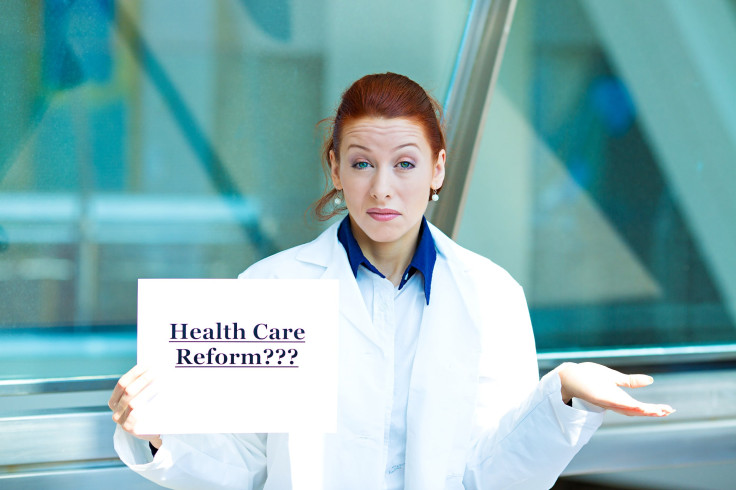Hospitals In States That Opted Out Of ACA Medicaid Expansion Face Money Problems

Medical providers in states opting out of the expansion of Medicaid under the Affordable Care Act (ACA) may soon experience increased financial trouble, even as the mostly Republican governors continue to spurn federal funding for people lacking health insurance.
The contrast between Democratic and Republican states on health care continues to grow, according to a recent report from the Department of Health and Human Services. Among the 26 states and the District of Columbia joining the federal expansion of Medicaid, enrollment in the health plan for the poor rose 27 percent. By contrast, Medicaid enrollment rose just three percent in the two dozen states opting-out of the expansion, according to Forbes.
“We expect providers in states that have chosen not to participate in expanded Medicaid eligibility to face increasing financial challenges in 2014 and beyond,” Fitch said in a report. “Nonprofit hospitals and health care systems in states that have expanded their Medicaid coverage under the ACA have begun to realize the benefit from increased insurance coverage.”
The political decision to opt-out of the Medicaid expansion has already adversely affected medical providers in those states, with 10 major health care systems downgraded by Fitch’s rating service. “Several of those downgrades were driven by operating performance declines related to funding and reimbursement pressures, which may have been lessened by Medicaid expansion,” Fitch said. “Conversely, of the nine upgrades since Jan. 1, eight were hospitals in states that have expanded Medicaid.”
Naturally, the health care industry in the United States would respond to the divergence of federal funds to half of the states, with a growing paucity of funding among others. Under the ACA, the federal government pays 90 percent of the Medicaid expenses for states after 2020, with full funding for three years. Those political decisions to opt-out of the expansion are “beginning to hurt hospitals,” Fitch said.
Even large national and regional health care plans have been affected by the divergence in public health care funding schemes across America, according to Fitch. “UnitedHealthcare is seeing significant and accelerating growth in Medicaid,” UnitedHealth president and chief executive officer Stephen Hemsley told analysts and investors last week, according to Forbes. “380,000 more people in the quarter and 635,000 through the first half of the year. Coming from expanded access to Medicaid in about half the states we serve, the launch of Florida’s planned Medicaid expansion, and core program growth from already established markets and programs.”
Yet, perhaps most important is the growing geographic divergence of poor Americans insured by Medicaid. Sixty percent of Americans without health insurance live in Medicaid opt-out states, a rise from 49.7 percent in September when the Medicaid expansion began under the ACA.
The Congressional Budget Office says the ACA has successfully enrolled six million private insurance subscribers with 13 million Americans gaining health insurance as a direct result of the law. Among those new enrollees are three million adults under age 26 added to their parents' policies, a key provision of the law in force across all 50 states.



























